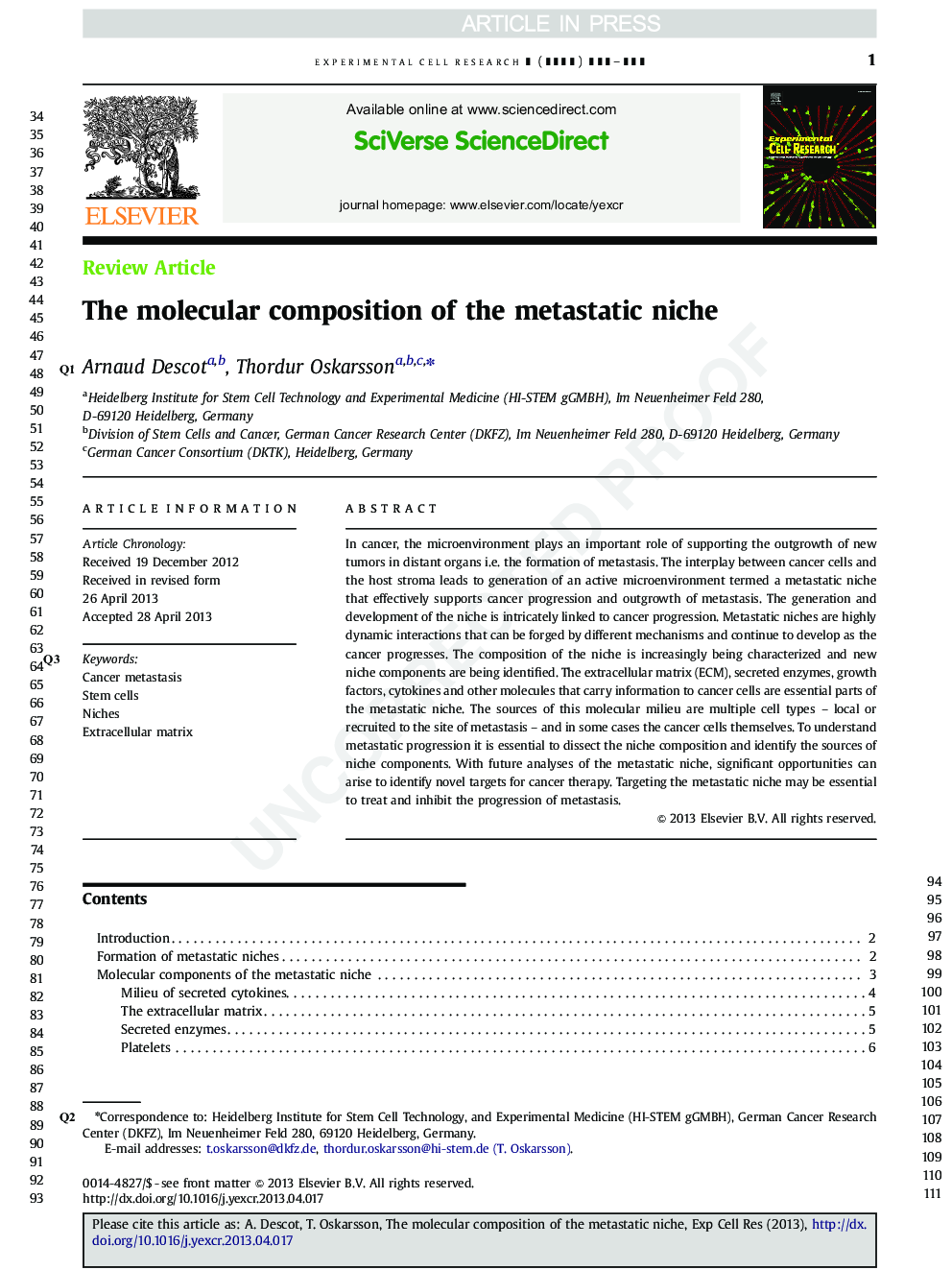| Article ID | Journal | Published Year | Pages | File Type |
|---|---|---|---|---|
| 10904311 | Experimental Cell Research | 2013 | 8 Pages |
Abstract
In cancer, the microenvironment plays an important role of supporting the outgrowth of new tumors in distant organs i.e. the formation of metastasis. The interplay between cancer cells and the host stroma leads to generation of an active microenvironment termed a metastatic niche that effectively supports cancer progression and outgrowth of metastasis. The generation and development of the niche is intricately linked to cancer progression. Metastatic niches are highly dynamic interactions that can be forged by diverse mechanisms and continue to develop as the cancer progresses. The composition of the niche is increasingly being characterized and new niche components are being identified. The extracellular matrix (ECM), secreted enzymes, growth factors, cytokines and other molecules that carry information to cancer cells are essential parts of the metastatic niche. The sources of this molecular milieu are multiple cell types - local or recruited to the site of metastasis - and in some cases the cancer cells themselves. To understand metastatic progression it is essential to dissect the niche composition and identify the sources of niche components. With future analyses of the metastatic niche, significant opportunities can arise to identify novel targets for cancer therapy. Targeting the metastatic niche may be essential to treat and inhibit the progression of metastasis.
Related Topics
Life Sciences
Biochemistry, Genetics and Molecular Biology
Cancer Research
Authors
Arnaud Descot, Thordur Oskarsson,
